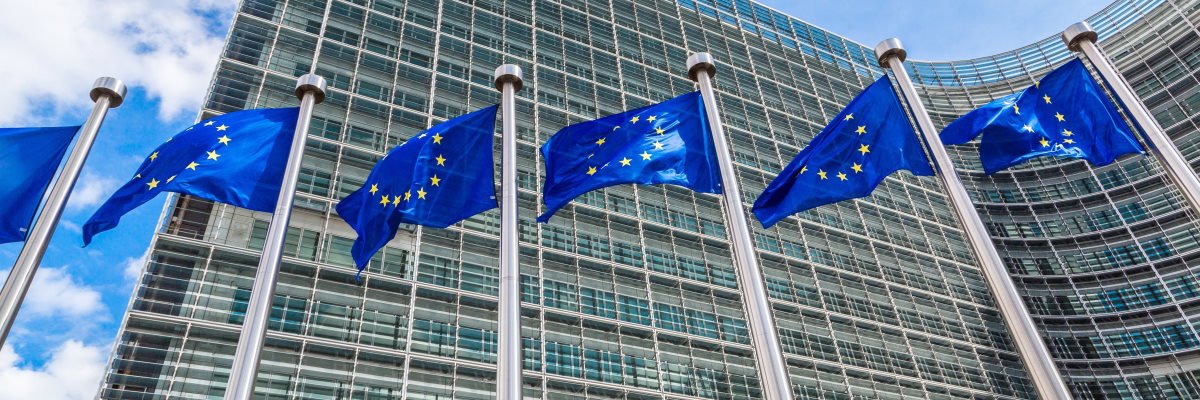European Commission proposes new cyber security regulations

The European Commission (EC) has proposed two new regulations to ascertain frequent cyber and knowledge security measures throughout the bloc, with the purpose of bolstering resilience and response capability towards a spread of cyber threats.
Under the proposed cybersecurity regulation, which was printed 22 March 2022, all European Union (EU) establishments, our bodies, workplaces, and companies might be required to have cyber security frameworks in place for governance, threat administration, and management.
They may even be required to conduct common maturity assessments, implement plans for enchancment, and share any incident-related info with Computer Emergency Response Team (CERT-EU) “without undue delay.”
The regulation would additionally set up a new inter-institutional Cybersecurity Board to drive and monitor the implementation of the regulation. The new board will additional assist to steer CERT-EU, which may even have its mandate prolonged to fill the triple function of being an incident response coordination hub, a central advisory physique, and a service supplier.
Under a separate Information Security Regulation proposal printed the identical day, the EC is looking for to create a minimal set of security guidelines to each improve and standardise how EU public organisations defend themselves towards evolving threats to their info.
These guidelines may even present for the safe trade of data throughout the EU by establishing frequent practices and measures to guard info flows, together with a shared method to info categorisation based mostly on the extent of confidentiality.
“In a connected environment, a single cyber security incident can affect an entire organisation. This is why it is critical to build a strong shield against cyber threats and incidents that could disturb our capacity to act,” stated Johannes Hahn, the EU’s finances and administration commissioner, in a statement.
“The regulations we are proposing today are a milestone in the EU cyber security and information security landscape. They are based on reinforced cooperation and mutual support among EU institutions, bodies, offices and agencies and on a coordinated preparedness and response. This is a real EU collective endeavour.”
The EC has additional claimed the adjustments are wanted within the context of the Covid-19 pandemic and rising geopolitical challenges, and that the foundations will strengthen inter-institutional cooperation, minimise threat publicity and customarily bolster the EU’s security tradition.
The proposals – which should now be mentioned by the European Parliament and Council – are according to the EU’s Security Union Strategy, which was printed in December 2020 and meant to bolster the bloc’s collective resilience towards cyber threats.
According to a World Economic Forum (WEF) report from January 2022, cyber security threats rank among the many high dangers going through the world, as threats similar to ransomware and nation-state-backed assaults proliferate and organisations turn out to be extra reliant on expertise.
“With cyber threats now growing faster than our ability to eradicate them permanently, it is clear that neither resilience nor governance are possible without credible and sophisticated cyber risk management plans,” stated Carolina Klint, threat administration chief for continental Europe at insurance coverage dealer and threat specialist Marsh.
On 9 March 2022, European governments also drafted a declaration to reinforce the EU’s cyber security capacities, which included rising EU funding to help nationwide efforts and develop a powerful cyber security ecosystem.
The further funding is meant to assist EU nations scale up their cyber capabilities by serving to to create a marketplace for trusted suppliers, in addition to reinforcing the resilience of choose operators that may be in danger throughout a battle.
The declaration additionally urged European authorities to provide you with a sequence of suggestions on the way to reinforce the resilience of Europe’s digital infrastructure.
In the UK, the federal government can be looking for to make a sequence of updates to the 2018 Network and Information Systems (NIS) regulations, which have been initially designed to guard the security of suppliers of vital nationwide infrastructure (CNI) – on this case, utilities, transport, healthcare and communications – backed by multimillion-pound fines for non-compliance.
These regulations might be expanded of their scope to incorporate managed service suppliers (MSPs) and suppliers of specialized on-line and digital companies, together with managed security companies, office companies, and common IT outsourcing. The UK authorities launched a session for suggestions on 19 January 2021.






